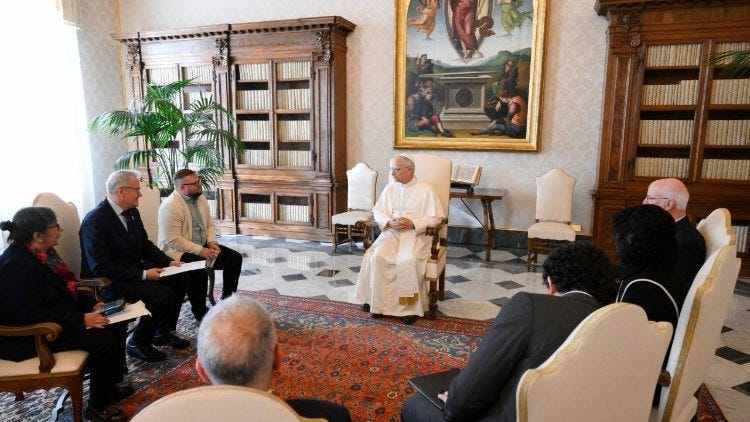Pope Leo Becomes First Pontiff to Meet with Catholic Sex Abuse Victims Group
While other popes have met with victims, Leo XIV's encounter marks the first-ever papal meeting with an organized group of abuse survivors and advocates.
Thank you for reading! Letters from Leo is a reader-supported publication. If you find value in my work, please consider becoming a paid subscriber or making a one-time donation.
For the first time in the 2,000-year history of the Catholic Church, a pope sat down officially with a coalition of clergy sex-abuse survivors, listened to their personal testim…



